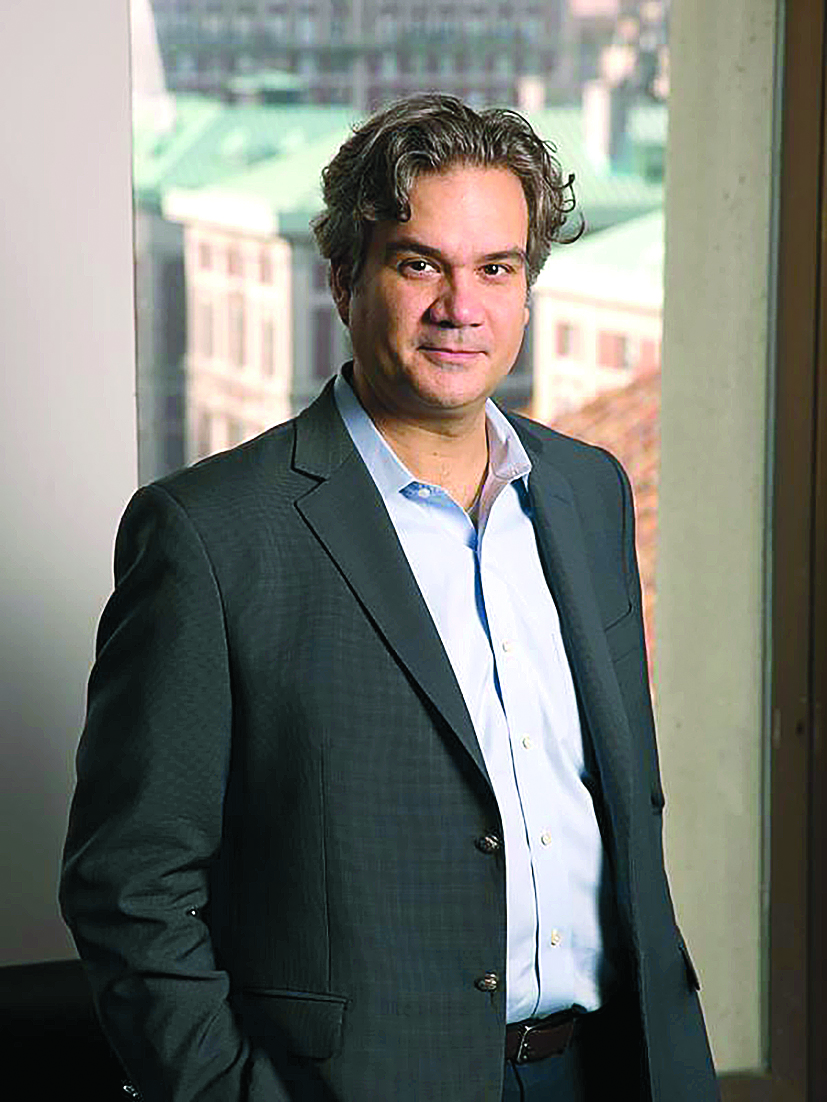Protracted stalemate will pressure Ukraine to negotiate
Vice provost at Columbia’s Barnard College on Russia’s reduced influence in Europe and Greece’s firm backing of Kyiv

Ukraine’s success on the battlefield has been key to maintaining the Western consensus on arming the country, according to Alexander Cooley, the Claire Tow Professor of Political Science and vice provost at Columbia University’s Barnard College. Speaking to Kathimerini, Cooley, who was director of Columbia’s Harriman Institute for the Study of Russia, Eurasia and Eastern Europe in 2015-21, interprets the Republican shift toward a skeptical stance on backing Ukraine, points to the reduced influence of Russia in Europe and declares himself unsurprised by Greece’s firm stand in support of Kyiv.
 Is there a growing consensus in the West that arming Ukraine is the best path to peace? Or is there a prevailing sense of stalemate, which could lead Western powers to press to Kyiv into talks?
Is there a growing consensus in the West that arming Ukraine is the best path to peace? Or is there a prevailing sense of stalemate, which could lead Western powers to press to Kyiv into talks?
For now, there still appears to be consensus that the gradual arming of Ukraine has led to its successful reclamation of territory and counteroffensives. However, if we see a protracted stalemate or an attritional war, especially after Kyiv receives and deploys new weaponry such as Western tanks, then Western leaders are more likely to publicly press the Ukrainian government to enter a negotiations process. It is Ukraine’s success on the battlefield that has helped to keep the Western consensus on sending arms.
How seriously should we take hard-right Republican objections to further support for Ukraine? With both Trump and DeSantis signaling disagreement with open-ended support, could the 2024 presidential election decide whether the US continues to back Ukraine?
‘An armistice or freezing of the conflict might tempt Vladimir Putin or future Russian leaders to regroup and pursue another military campaign down the road’
DeSantis appears to have shifted his stance to position himself with Republican primary voters and align with Trump on the issue – the MAGA primary voters tend to be more nationalist, concerned about US border security rather than foreign policy, and culturally conservative. They are also distrustful of Ukraine in that they view Zelenskyy as having somehow entrapped Trump during their phone call that was the cause of the former president’s first impeachment. At various times, Kyiv has also been at the center of various right-wing conspiracy theories – it has been blamed as the actual source of election interference in 2016 instead of Russia, and it has been associated with facilitating Hunter Biden’s alleged corruption. By opposing open-ended commitments to Ukraine, DeSantis hopes to neutralize the issue in a primary showdown with Trump. But if he wins the nomination, he will then have to tack back to a more supportive stance during the general election. Over 60% of the American public favors the continued support of Ukraine.
How much has Russia’s influence on public opinion in Europe weakened?
It is quite diminished now in major party politics, despite continued Russian informational operations and some sympathies across European far-left and far-right parties. Russia underestimated the reputational costs of its aggressive actions. Its full-scale invasion and attempt to take Kyiv went well beyond predictions of an assault on the Donbas or some sort of limited operation. Soon after, it was stigmatized for its invasion and genocidal rhetoric. Some prominent European far-right politicians who opposed the transatlantic alliance, most notably France’s Marine Le Pen, distanced themselves from Putin because he was so politically toxic. Italy’s Prime Minister Giorgia Meloni has strongly backed Zelenskyy even while pushing her conservative agenda on social issues and migration, openly breaking with her League partners who are more supportive of Moscow.
How worried are you about a defeated Russia as a source of local and global disorder?
I think it would depend on the type of defeat(s). Hypothetically, Russia might hang onto some of its territorial gains, including Crimea, but would still face a strategic defeat if Ukraine was offered EU membership and a set of security guarantees by major European powers. An armistice or freezing of the conflict might tempt Putin or future Russian leaders to regroup and pursue another military campaign down the road. Without some sort of mechanism of domestic accountability that exposes Putin’s decisions and documents the war’s disastrous humanitarian consequences within Russia, the Kremlin will contemplate renewing hostilities at a later date and when it has the capabilities and opportunity to do so.
Was it a surprise Greece didn’t prove to be a weak link in the Western Alliance against Russia?
Perhaps to some – but Greece’s own political history has been one of enjoying membership in Western political and security organizations, while criticizing them from within for political benefit. Recall Andreas Papandreou’s fiery rhetoric against US bases in the 1980s, despite which the facilities and Greece’s NATO membership endured. Some were concerned that when SYRIZA came to power they might block EU sanctions on Russia; instead, it ushered in a significant new era of US-Greece bilateral security cooperation and the expansion of the US military presence in Greece. Populism and anti-Americanism are enduring features of domestic politics, but they rarely seem to lead to actual changes in Greece’s Western-oriented foreign and security policy.





